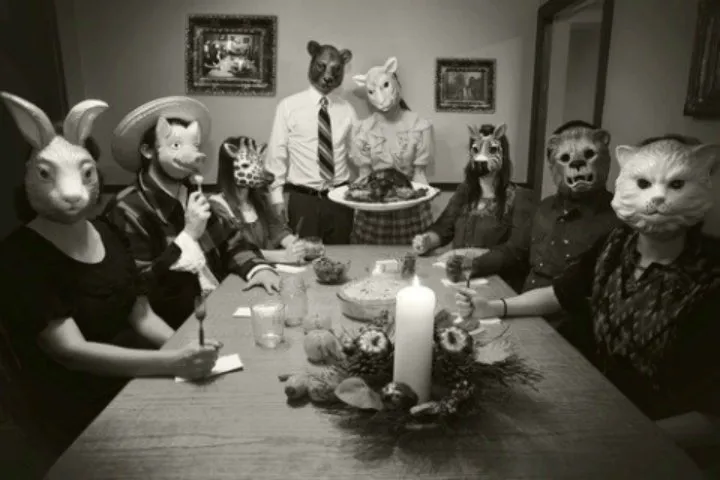
It is one of those classic questions; "Alive or dead; who would your ultimate dinner guests be?" - I have been asked variations of that question over the years, and each time I have come up with some vaguely interesting answers.
Recently I have been thinking of that question a lot lately; often whilst watching something on Youtube, about an inspiring historical figure. So I have decided to compile a short list, of ten people, both dead and alive; that were I able to traverse the gaps between space and time; I would invite to dinner.
Albert Einstein
This is an obvious one for me and like many people he's number one on my list. I first became aware of Einstein, some time around my early teens.
I was immediately fascinated with him and wanted to find out everything I could about his theories. I was amazed at how he managed to work out something so counter-intuitive as General Relativity, with nothing more than, his brain, a pencil and paper.
He inspired me to become a physicist, unfortunately my accumen for the subject did not match my passion, so alas a physicist's life was not for me. I still retain a healthy interest in physics, astronomy and quantum mechanics today and it's all because of Albert Einstein.
I thought I knew everything there was to know about Einstein, but then one night, I came across a documentary about him. I thought that I would watch it for ten minutes, just to make sure it was nothing new.
However I ended up watching the whole thing, it is hands down the best doc I have seen about him and I highly recommend watching it. Although make sure you have a spare hour and a half, before you start!
What I'd ask him: What he felt the chances of artificial gravity were.
What I would show him: The Large Hadron Collider
Niccolo Machiavelli
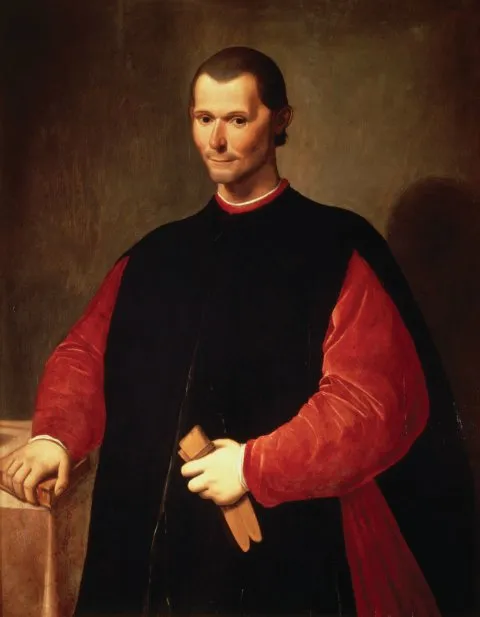
The 16th century Florentine nobleman's name, is synonymous with being sneaky, manipulative and underhanded. Whereas in truth, he was an observer of these traits, much less an agent of them.
Machiavelli was a brilliant historian, in that he could look back at events that happened in and before his time. Then he would weave those events into the most amazing stories.
The story he is most famous for is his book dedicated to Cesare Borge, The Prince. This was definitely his magnum opus and it has survived the centuries to be classed as the most definitive book on political manouverings.
I doubt there is a political leader on Earth, who has not read The Prince and if there is, that person won't be leading for very long!
What I would ask: How he would have advised David Cameron to handle Brexit.
What I'd show him: The united country of Italy, he always dreamed of.
Queen Boudica
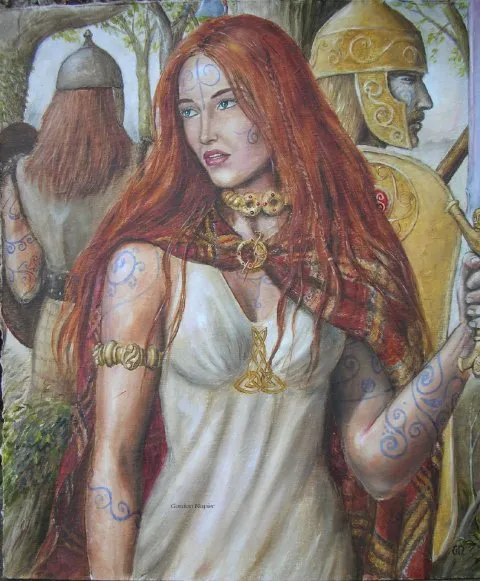
Queen Boudica, sometimes pronounced Boadicea (Bo-di-see-ya), was the warrior Queen of the Iceni, an ancient Celtic tribe, based in Britain around the time of the Roman Emperor, Nero.
She shook Nero to his core so much so, that he wanted to withdraw his troops from Britain. She had a fearsome reputation and was the originator of girl power.
The King of the Iceni Prasutagus was respected by his people and the Romans. Nero swore to uphold the dying wishes of Prastagus, that his two daughters should inherit half his lands and fortunes, dedicating the other half to Rome.
However this wasn't in accordance with Roman law, which only permitted inheritance to be passed down to male airs.
Upon the death of Prasutagus, the Roman army took control of all his land and possessions. They publicly flogged Boudica and raped her daughters in front of her.
Boudica swore to avenge her daughters' shame, and wreaked havoc on the Roman army in Britain. She famously sacked the city of Camulodunum, modern-day Colchester. Her army of 100,000 men women and children were finally defeated in the famous battle of Wattling Street.
What I would ask: How she felt women's roles differed in today's society, from her own.
What I would show her: Battle tanks
Stephen Fry
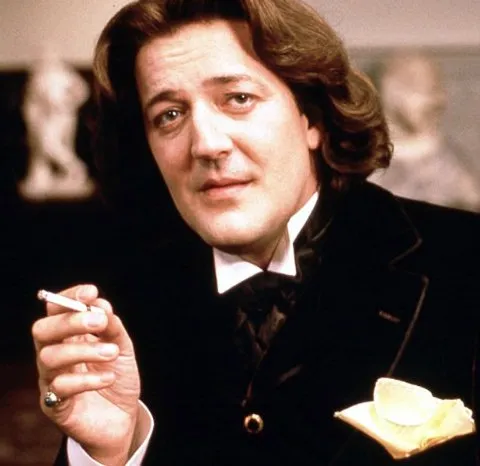
This is the first living person on the list, because if I were having a real dinner party, with actual living people who might even come to my house; then Stephen Fry would be first on my list.
He has been described as the Oscar Wilde of our times, and indeed, played the great man, in the 1997 film, Wilde, and just like Wilde in his day; Fry is clearly the wittiest man in Britain.
I first remember him from his 80s, UK, hit TV show, A Bit Of Fry & Laurie, to be honest I can't remember much of the contents of that show as I was fairly young when it was out. But I remember it was an offbeat, sketch show, that always had me in stitches.
The first role I remember him in, was as Lord Melchard, in the BBC hit comedy, starring Blackadder, delivering the sort of lines that would have you repeating them the next day to your friends. I love his humour because it is so offbeat, he is immensely intelligent and can find humour in the most abstract of subjects.
These days he mainly hosts a show called Q.I., standing for Quite Interesting; whilst this is a great vehicle for him to show off his versatile wit, I can't wait to see him in another acting role.
What I'd ask him: His views on so many things, from the Queen to cryptocurrency.
What I'd show him: With trepidation; my creative writing.
Dame Kelly Holmes
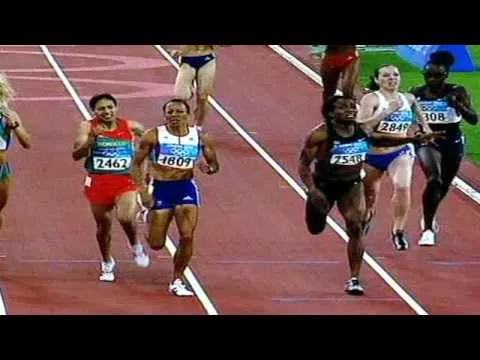
Kelly Holmes's sporting career was the embodiment of all I admire, grit, stubborness, the desire to win and never giving up.
As a junior and coming up through the ranks Kelly always showed promise; perhaps it was her time in the army that gave her the mental toughness and the will to carry on in the face of adversity. Or perhaps it was the fact she was given up for adoption because she was a mixed race child born to a white mother in the 1970s. Whatever the reason, it spurred her on to become a great champion.
Her first medals were in 1994, when she won the 1500 metres gold, at the Commonwealth Games and a silver at the European Championships. Two years later at the Olympic Games in Atlanta, her injury woes started and she was to miss out on a medal.
Kelly always seemed to recover in between Olympics, only to have injury worries as the Games came up, despite this she still managed a bronze at the Sidney games in 2000. Everybody new she could do better; was she forever to be the Olympic bridesmaid?
Then in 2004, at her last Olympics, at 34 years of age; she competed in both the 800 and 1500 metres. She had been injured in the run up to the games and had suffered such severe depression, she later claimed that she was suicidal.
However, the fairy tale ending happened for Dame Kelly, she triumphed in both races, she was at last, a double Olympic Champion. Even as I write these words now, tears of joy are stinging my eyes; as I remember her crossing the line, arms aloft; the words of the great Brendan Foster ringing out;
"At last! At last, she says! At last I am a champion!"
What I would ask: How she battled her depression and still managed to be the greatest female middle distance runner of all time.
What I would show her: My daughter's athletic ability.
Lee Strasberg
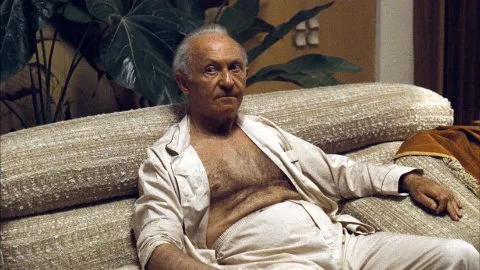
In the late 19th Century, Konstantin Stanislavsky, developed his method for acting, the philosophy was based around getting an actor to draw on his or her real life experiences and emotions.
Around a half a century later, Lee Strasberg popularised method acting, whilst teaching the technique to many great actors and directors. He taught the talented and controversial, Elia Kazan, director of 1950s classics, A Streetcar Named Desire and On The Waterfront.
Strasberg claimed to have been influential in shaping Marlon Brando's career, but Brando never gave him credit for that, and apparently the two men did not see eye to eye.
However Lee Strasberg is loved thoughout the acting community, Al Pacino speaks very warmly about his old mentor. In 1974 Al Pacino begged Francis Ford Coppola to give Strasberg a role in the seminal, mafia film; Godfather II.
Strasberg went on to play Hyman Roth and as legend has it; after Strasberg was nominated for an Academy Award for the part, mobster Meyer Lansky (whom the part was apparently based on) called Strasberg to congratulate him, saying; "This is Meyer Lansky. I wanted to pay you my compliments. Truly a great performance, but you could have made me a little more sympathetic."
What I would ask him: To teach me The Method.
What I would show him: The short film I starred in.
Marie Curie
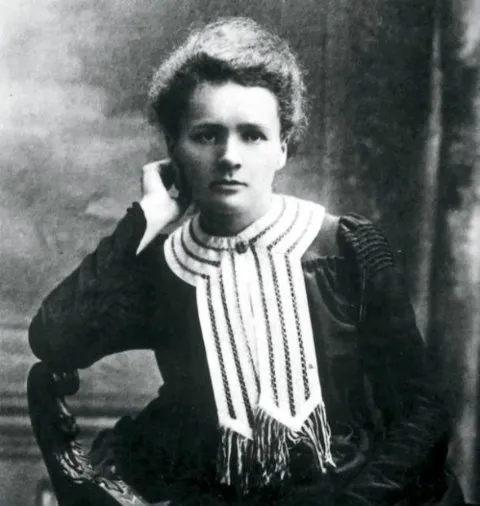
Marie Curie is probably the greatest female scientist of all time; she is the founder of chemotherapy and the discoverer of various radioactive isotopes, the first, Polonium, she named after her native country, Poland.
She won the Nobel Prize twice; she was the first person to win it twice and is still the only woman to ever do that. She remains, till this day, the only person in history, to win a Nobel Prize in two different sciences.
Her achievements included the development of the theory of radioactivity, techniques for isolating radioactive isotopes, and the discovery of two elements, polonium and radium. She founded the Curie Institutes in Paris and in Warsaw, yet unbelievably, she was denied a place at Warsaw university because she was a woman!
Curie would not have been able to pick up her first Nobel Prize, if she had not worked with her husband, indeed her early work is heavily documented, as rampant misogyny at the time, meant that people simply could not believe that a woman could be that brilliant.
Marie Curie paid the ultimate sacrifice for the gift that she gave to the human race, her work poisoned her, possibly making her the first, medical martyr. Without her, many modern medical techniques would not be possible, or would have taken a lot longer to discover, she is an underrated genius and would get a place at my table anytime.
What I would ask her: The thought processes, leading up to her discovery of radioactivity.
What I would show her: A Magnetic Resonance Imaging (MRI) machine.
Kate Winslet
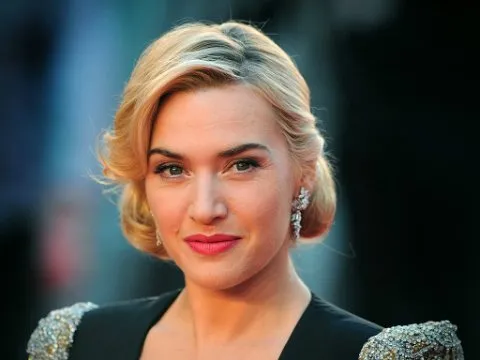
Kate Winslet would make this list for a couple of reasons, one she is a great actress and has played some varied and interesting roles. Secondly, her performance in an episode of Ricky Gervais's TV comedy, Extras, in which she played a satirical version of herself.
In that episode, she revealed her fun side and showed that she is actually a very funny lady and could easily have been an acclaimed comedy actress..
Her versatility and style is second to none, and I believe that if she were a man, people would be debating whether she's the greatest actor of all time. She has been in a couple of bad films, as have most actors, but she would have been absolutely brilliant in them.
Kate finally got her Oscar for the film about a Nazi, concentration camp guard called, The Reader, many found that somewhat humorous, after her 6 previous nominations had failed to bag her the coveted statue. The reason being, in her episode of Extras, she told the character Maggie, that the only reason she was doing a WWII film, was to get an Oscar.
What I would ask her: Who her female role models were growing up and what inspired her to greatness.
What I would show her: The seat next to Marie Curie, so that she could end up playing her in an epic.
Dr. V.S. Ramachandran
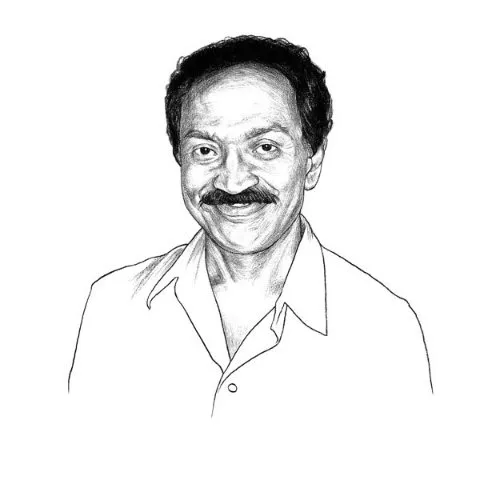
Dr Ramachandran was once described as the Marco Polo of neuroscience; I first discovered him when I read his book; The Tell Tale Brain, back in 2010.
My girlfriend was about to give birth to our baby daughter, and I felt I had a duty to my unborn child, to learn as much about the human brain and child, cognitive, development as I could. I read several interesting books, and discovered the concept of neuroplasticity.
I had been vaguely aware of this phenomenon before, though had not known its name, nor really how it worked.
When I read The Tell Tale Brain, I discovered that Dr. Ramachandran and his team, had discovered the Mirror Neuron System (MNS) in the human brain.
The MNS allows human beings to learn, by firing the same neurons in the brain of someone watching a subject performing a task.
So in other words, when you watch somebody hammering in a nail, the same neurons that are responsible for allowing that person to bash the nail into the wood. Are the same neurons that fire in your brain as you watch, the only thing stopping your hand from unconsciously mimmicking the action; are inhibitor neurons, acting on visual feedback.
The book also reveals many fascinating brain conditions; which are ultimately how we know what we know about the human brain.
For instance; Capgras Syndrome, the belief that a family member (usually one of your parents), is an impostor. This comes from a very localised type of damage, whereby the pathways that lead from the fusiform gyrus (facial recognition), to the amygdala; the emotional center of the brain is damaged.
Ramachandran also goes down in history as the first person to perform an amputation on a phantom limb! He did so with his amazingly intuitive, mirror box, which he used to ease the pain of a phantom limb, of an amputee.
So for those reasons, and many more, V.S Ramachandran, would be at my dinner table any day!
What I'd ask him: If he felt that synesthesia could be learned or induced.
What I'd show him: My theory of how intuition, evolved and developed in the human brain.
Christine Frederick
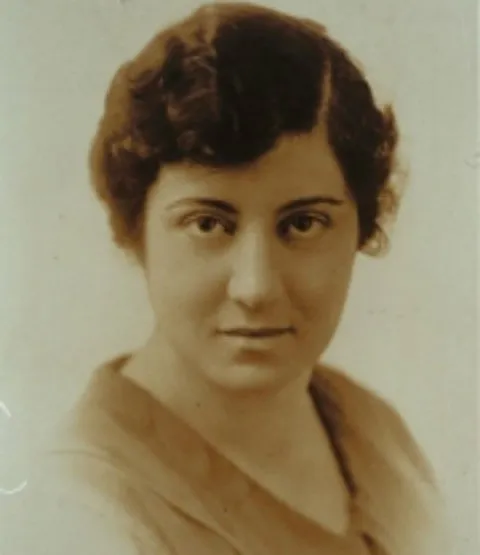
My last guest is a little known, American early 20th century economist, Christine Frederick. In her Grand Opus, a book titled, Selling Mrs Consumer, Frederick gave an early justification for planned obsolescence, which forms the basis for all modern advertising.
Before Frederick wrote her book in 1929, people were engaged in the shocking habit, of buying things when they needed them, as opposed to when they just wanted them.
Christine Frederick changed all of that with her book, in it she proffered forth the theory that, manufacturers of goods, needed to put the idea into people's heads, that they should buy things, not because they needed to replace exsisting things; but rather because fashions had changed.
Before her, cars were all painted black, Frederick discovered that men bought cars when their old one broke, whereas a woman might want a car because of the design and or colour.
In 1929, this was revolutionary and her book; for better or for worse, changed the way women and men were advertised to, forever more.
Not much is known about Frederick and she definitely doesn't get the credit she deserves, and so for that, I would invite her to find out what made this amazing woman tick.
What I'd ask her: Does she feel that her theories are still relevant for women in modern society?
What I'd show her: The film; How To Get A Head In Advertising.
OK, so that's it; I have many, many more people, alive and dead that I would love to invite to dinner and converse with; however I think these ten are a good balance. I also feel that these people would get on together; I delight at the thought of Stephen Fry, excitedly asking Queen Boudica to retell tales of her famous battles.
Or V.S. Ramachandran discussing the posibility of quantum tunneling occuring in the brain, at the exact instance of Déjà vu.
My only hope would be that I wouldn't be too tounge-tied in the presence of such great men and women!
Right I'm off to build a time machine and some kind of universal translation device, so that I can go back in time and round up my 5 long dead guests!
In the meantime...
